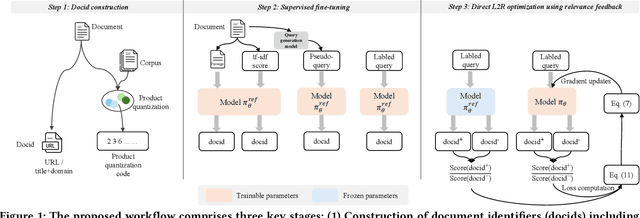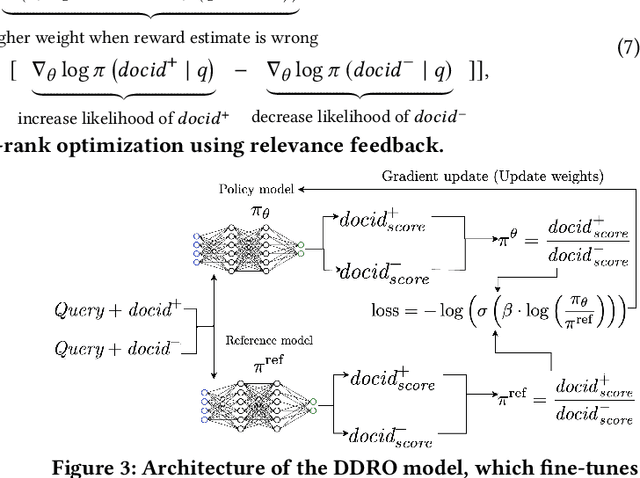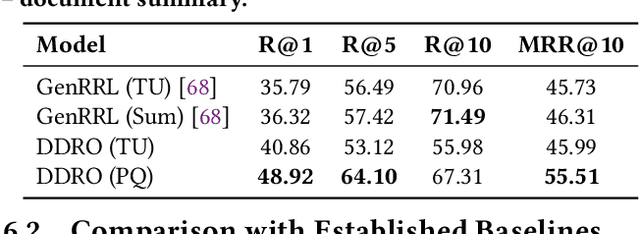Lightweight and Direct Document Relevance Optimization for Generative Information Retrieval
Paper and Code
Apr 07, 2025



Generative information retrieval (GenIR) is a promising neural retrieval paradigm that formulates document retrieval as a document identifier (docid) generation task, allowing for end-to-end optimization toward a unified global retrieval objective. However, existing GenIR models suffer from token-level misalignment, where models trained to predict the next token often fail to capture document-level relevance effectively. While reinforcement learning-based methods, such as reinforcement learning from relevance feedback (RLRF), aim to address this misalignment through reward modeling, they introduce significant complexity, requiring the optimization of an auxiliary reward function followed by reinforcement fine-tuning, which is computationally expensive and often unstable. To address these challenges, we propose direct document relevance optimization (DDRO), which aligns token-level docid generation with document-level relevance estimation through direct optimization via pairwise ranking, eliminating the need for explicit reward modeling and reinforcement learning. Experimental results on benchmark datasets, including MS MARCO document and Natural Questions, show that DDRO outperforms reinforcement learning-based methods, achieving a 7.4% improvement in MRR@10 for MS MARCO and a 19.9% improvement for Natural Questions. These findings highlight DDRO's potential to enhance retrieval effectiveness with a simplified optimization approach. By framing alignment as a direct optimization problem, DDRO simplifies the ranking optimization pipeline of GenIR models while offering a viable alternative to reinforcement learning-based methods.
 Add to Chrome
Add to Chrome Add to Firefox
Add to Firefox Add to Edge
Add to Edge